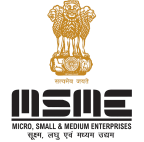Herbal Medicine and Aromatherapy
Syllabus for Short Course: Herbal Medicine and Aromatherapy
Duration: 3–6 Months
Institution: Rajgor Health and Education Centre, Affiliated with Guru Kashi University
This course provides foundational knowledge and practical skills in herbal medicine and aromatherapy. It explores the healing properties of plants and essential oils, empowering students to create natural remedies for wellness and relaxation.
Course Structure
Module 1: Fundamentals of Herbal Medicine
- Introduction to Herbal Medicine
- History and evolution of herbal medicine
- Overview of modern and traditional herbal practices
- Understanding Medicinal Plants
- Basic botany for herbalists
- Identifying, harvesting, and preserving medicinal herbs
- Phytochemistry
- Active compounds in medicinal plants (alkaloids, flavonoids, etc.)
- How these compounds affect the human body
Module 2: Herbal Preparations
- Herbal Infusions and Decoctions
- Techniques for preparing herbal teas and medicinal decoctions
- Common herbs for different health concerns
- Tinctures, Salves, and Poultices
- Making alcohol-based tinctures and oil-based salves
- Applications of herbal poultices for healing
- Herbal Capsules and Powders
- Preparing and storing powdered herbs
- Encapsulation techniques for herbal supplements
Module 3: Fundamentals of Aromatherapy
- Introduction to Aromatherapy
- History and uses of essential oils in healing
- Difference between aromatherapy and herbal medicine
- Properties of Essential Oils
- Common essential oils and their therapeutic properties
- Safety and dilution guidelines for essential oils
- Methods of Extraction
- Techniques for extracting essential oils from plants
- Understanding steam distillation and cold pressing
Module 4: Practical Applications of Aromatherapy
- Aromatherapy for Stress and Relaxation
- Essential oils for calming the mind and body
- Techniques for creating relaxation blends
- Aromatherapy for Physical Health
- Oils for respiratory support, pain relief, and immune boosting
- Applications in massage therapy and skincare
- Diffusion and Inhalation
- Using essential oil diffusers for therapeutic benefits
- Steam inhalation techniques
Module 5: Combining Herbal Medicine and Aromatherapy
- Herbal and Aromatic Synergies
- Creating remedies using both herbs and essential oils
- Blending oils and herbs for specific conditions
- Customized Wellness Plans
- Assessing individual needs and recommending herbal-aromatic remedies
- Designing personalized healing protocols
Module 6: Practical Skills and Project Work
- Herbal and Aromatherapy Workshop
- Hands-on preparation of herbal remedies and aromatic blends
- Case studies and real-world applications
- Creating Herbal Products
- Making herbal soaps, balms, and aromatherapy candles
- Packaging and storing herbal and aromatic products
- Project Work
- Developing a complete herbal or aromatherapy product line
- Presentation of the project for evaluation
Assessment and Certification
- Practical Examination: Demonstration of herbal and aromatherapy techniques.
- Written Examination: Testing theoretical knowledge of herbs and essential oils.
- Final Project Presentation: Evaluation of the herbal or aromatic product line created by the student.
Upon successful completion, participants will receive a Certificate in Herbal Medicine and Aromatherapy, enabling them to apply their knowledge in personal or professional wellness practices.

.jpg)
.jpg)
.jpg)
.jpg)
.jpg)
.jpg)
.jpg)
.jpg)
.jpg)
.jpg)
.jpg)
.jpg)